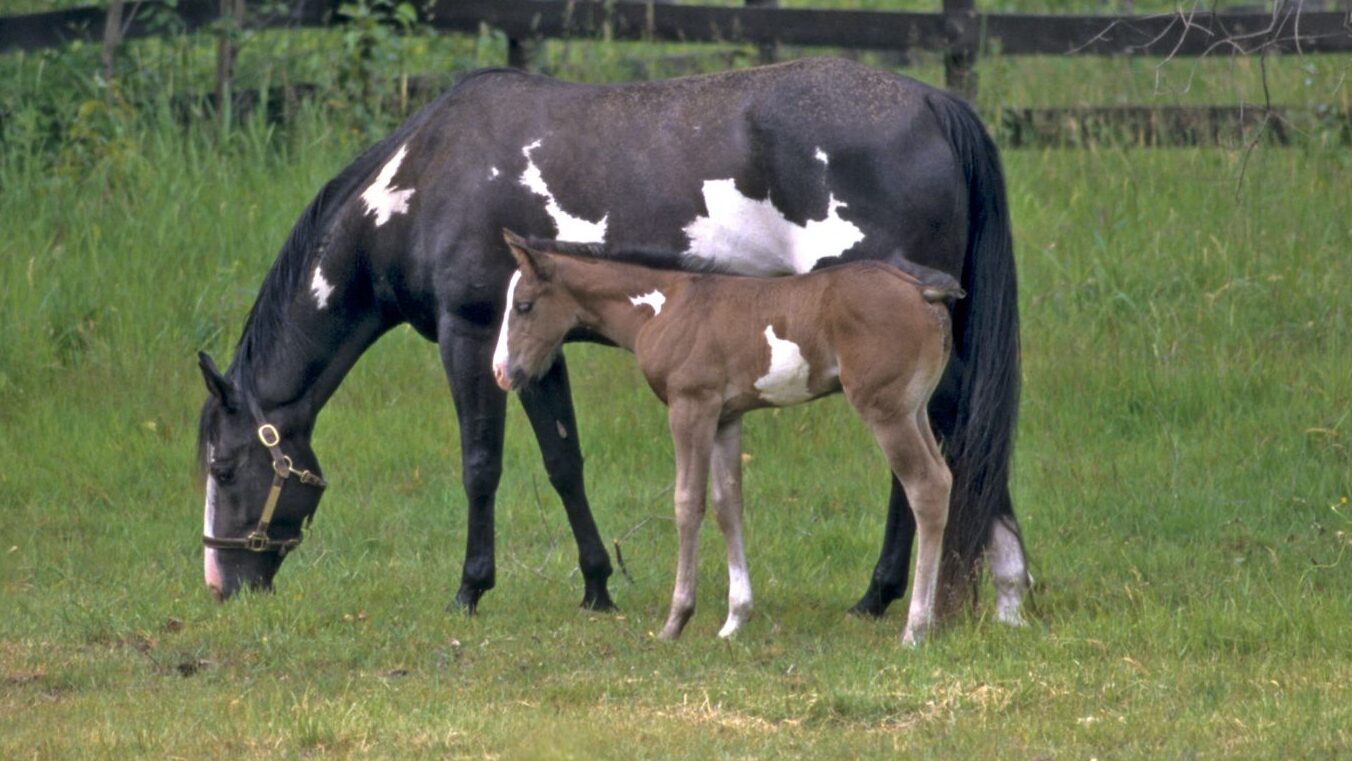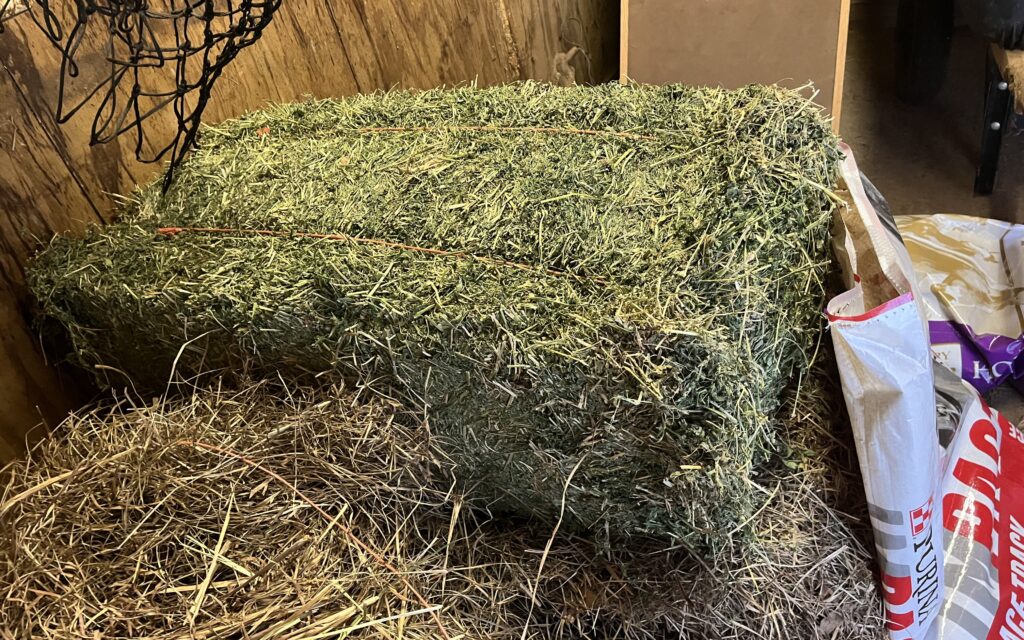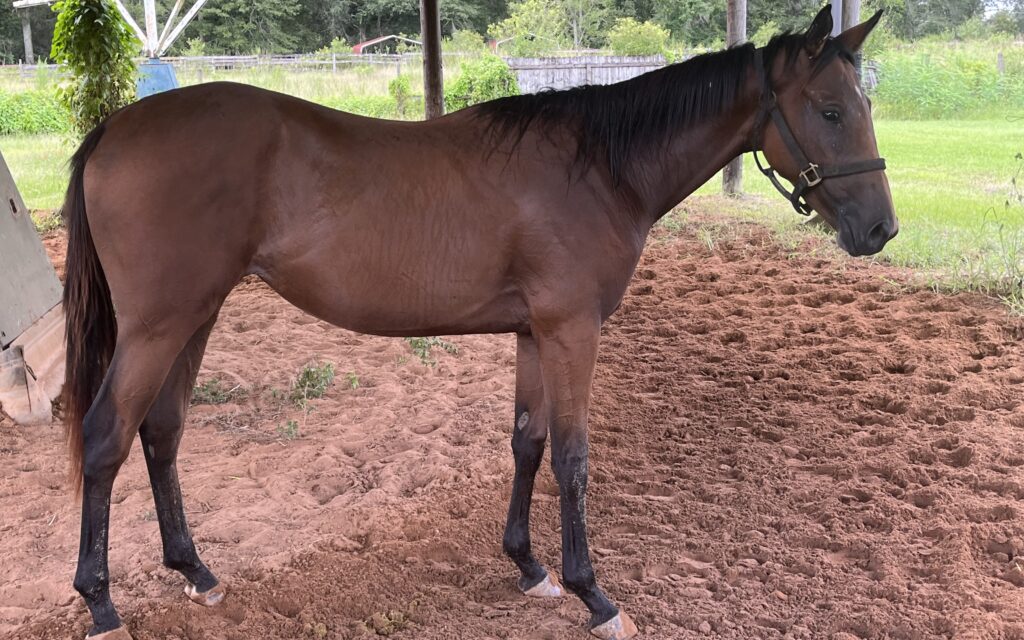Last updated: June 15, 2025
Any links on this page that lead to products on Amazon are affiliate links and I earn a commission if you make a purchase. Thanks in advance – I really appreciate it!
Did you know that up to two out of three horses may suffer from equine ulcers? These painful sores in the digestive system can harm their health, behavior, and performance. As a long-time horse owner with over 25 years in the horse racing industry, I’ve seen firsthand how ulcers can sideline even the most promising horses.
Equine gastric ulcer syndrome (EGUS) is a common issue, especially in athletic horses, yet it’s often overlooked. In this guide, I’ll share the symptoms, causes, and risk factors of horse ulcers, along with effective treatment and prevention strategies. Whether you’re managing ulcers or looking to prevent them, this article will help you take proactive steps to keep your horse healthy and performing at their best.

What Are Equine Ulcers and Why Do They Matter?
Equine gastric ulcer syndrome (EGUS) refers to sores that develop in a horse’s digestive tract, including the esophagus, stomach, and small intestine. These ulcers range from mild irritation to severe sores that can lead to life-threatening complications.
Athletic horses are especially prone to ulcers due to stress and high-energy diets. Left untreated, ulcers can cause discomfort, weight loss, dull coats, and behavioral changes. In severe cases, they can lead to colic or malnutrition. (Source)
Types of Equine Ulcers
Horses have a complex stomach with two distinct areas:
- Squamous (upper part): Prone to irritation due to a lack of protective buffers.
- Glandular (lower part): Produces acid continuously but has protective layers.
The three main types of ulcers include:
- Squamous Mucosal Ulceration: Found in the unprotected upper stomach.
- Glandular Mucosal Ulceration: Affects the lower stomach.
- Hindgut Ulcers (Right Dorsal Colitis): Often caused by medications like phenylbutazone.
Diagnosing Hindgut Ulcers
Hindgut ulcers are challenging to diagnose because they occur in the colon, an area not easily accessed with standard diagnostic tools like gastroscopy. Symptoms often overlap with other conditions, making them harder to identify. Common diagnostic methods include:
- Fecal Blood Tests: These tests detect microscopic traces of blood in the manure, indicating possible damage to the colon.
- Symptom Response to Treatment: Veterinarians may recommend dietary changes or supplements, such as psyllium or pectin-lecithin complexes, to observe if symptoms improve.
- Advanced Diagnostics: In some cases, abdominal ultrasound or other imaging techniques may be used to assess the hindgut.
If you suspect hindgut ulcers, consult your veterinarian for a thorough evaluation and a tailored treatment plan. You can find additional insights on equine ulcers in Equine gastric ulcer syndrome in adult horses: a review.
Here is a helpful YouTube video on Equine Gastric Ulcer Syndrome.
Recognizing the Signs of Equine Ulcers
Detecting ulcers early is crucial. Common signs include:
Digestive Issues:
- Mild colic
- Diarrhea
- Weight loss
- Rough hair coat
- Loss of appetite

Behavioral Changes:
- Irritability
- Reluctance under saddle
- Girthiness
Physical Signs:
- Lack of energy
- Stiffness or sore back
- Teeth grinding
Once symptoms are identified, confirming the diagnosis with the right tools is essential to develop an effective treatment plan.
How a Vet Confirms Equine Ulcers
A veterinarian can confirm ulcers using a gastroscopy, which involves passing a small camera through the horse’s mouth to examine the stomach and intestines. This procedure helps identify ulcers and their severity.

Preventative Strategies for Equine Ulcers
Preventing ulcers in horses involves a combination of dietary adjustments, stress management, and consistent care. Below are key strategies to help safeguard your horse’s health.
Feeding Strategies for Ulcer Prevention and Treatment
Proper feeding practices are crucial for preventing and managing equine ulcers. Key strategies include:
- Prioritize Forage:
Ensure that 70% or more of the horse’s diet consists of high-quality forage, such as grass hay or alfalfa. Alfalfa, in particular, is rich in calcium and acts as a natural antacid, buffering stomach acid and promoting healing.- Learn more about the benefits of alfalfa in horse diets.
- Explore this research on forage-based diets and ulcer prevention.
- New Insight: Recent findings from Utah State University reveal that saponins and polysaccharides in alfalfa may contribute to its healing properties, in addition to buffering stomach acid. Learn more here.
- Limit Grain Intake:
Replace high-starch feeds with low-starch alternatives to maintain a healthy stomach pH. Research has shown that high-starch diets significantly increase the risk of ulcers. - Provide Small, Frequent Meals:
Mimic natural grazing behavior by feeding smaller portions more frequently throughout the day. - Use Hay Nets:
Extend feeding times by using hay nets to encourage slower consumption, which helps maintain consistent acid levels in the stomach. - Incorporate Digestive Aids:
- Probiotics like Lactobacillus acidophilus and prebiotics such as MOS (mannanoligosaccharides) have been studied for their role in improving gut health and reducing ulcer risk. Explore more about equine digestion.
- Probiotics like Lactobacillus acidophilus and prebiotics such as MOS (mannanoligosaccharides) have been studied for their role in improving gut health and reducing ulcer risk. Explore more about equine digestion.
Research supports these strategies, with studies emphasizing the role of frequent feeding and forage-based diets in preventing gastric ulcers. Tailoring these feeding practices to your horse’s needs can significantly reduce the likelihood of ulcers.
While proper feeding lays the foundation for gut health, minimizing stress through a calm, consistent environment further complements these efforts.

Reducing Stress Through Environmental Management
Environmental and Management Strategies:
- Maximize turnout time to reduce stress.
- New Insight: A study published in PMC highlights the importance of consistent turnout and low-stress environments in reducing the incidence of ulcers. Horses given regular turnout and access to social interaction showed a 30% reduction in ulcer prevalence.
- Provide continuous access to clean water.
- Minimize stall confinement.
- Explore, Understanding Stress in Horses and Its Effect on Performance
Case Study: How Proactive Care Prevented Ulcers in My Horse
During an intense training season, one of my geldings began showing signs of discomfort. After consulting my veterinarian, I adjusted his training schedule and added alfalfa hay to buffer his high-protein feed mix. Within weeks, his energy and performance improved significantly. This case underscores the importance of dietary adjustments and regular monitoring to prevent and manage ulcers effectively.
Despite proactive prevention, ulcers can still develop, requiring a comprehensive approach that combines dietary changes, medications, and long-term management.

Medications for Ulcer Treatment
Proton Pump Inhibitors (PPIs)
- Examples: Omeprazole (marketed as GastroGard).
- How It Works: PPIs target the proton pumps in the stomach lining, which are responsible for secreting stomach acid. By inhibiting these pumps, PPIs significantly reduce acid production, creating an environment that allows ulcers to heal.
- Why It’s Effective: This medication is particularly useful for treating squamous and glandular ulcers because it addresses the root cause—excess stomach acid. Studies show that PPIs can promote healing in as little as two weeks with consistent use.
- Usage Tip: Administer on an empty stomach for maximum absorption.
- Research has shown that PPIs like omeprazole are effective in managing equine gastric ulcers. (Source)
H2 Blockers
- Examples: Ranitidine and Cimetidine.
- How It Works: These drugs block histamine receptors in the stomach lining, which are a key trigger for acid production. Unlike PPIs, which act directly on proton pumps, H2 blockers reduce acid indirectly by interrupting the signaling process.
- Best Application: Effective for mild ulcers or as a maintenance therapy following PPI treatment.
- Limitations: Require frequent dosing (2–3 times daily) for sustained effectiveness.
Protective Coating Agents
- Examples: Sucralfate and Pectin-Lecithin Complex.
- How It Works: These medications create a physical barrier over ulcerated areas, protecting them from stomach acid while promoting natural healing. Sucralfate also stimulates mucus production, which adds another layer of protection.
- Best Application: Ideal as an adjunct therapy, particularly for horses with severe ulcers or persistent symptoms.
Antacids
- Examples: Sodium Bicarbonate.
- How It Works: Antacids neutralize existing stomach acid, providing immediate but temporary relief. They are not a long-term solution as they do not address the underlying causes of acid overproduction.
- Usage Tip: Best used in acute cases for quick symptom management while transitioning to more targeted treatments like PPIs.
By understanding how these medications work and their specific applications, horse owners can better collaborate with veterinarians to develop an effective treatment plan tailored to their horse’s needs.
While medical treatments are effective, many horse owners have found success with natural remedies that complement traditional approaches.

Natural Remedies for Ulcers
Natural remedies can complement medical treatments, especially for mild ulcers:
- Slippery Elm: Forms a protective coating over the stomach lining. Studies have shown its efficacy in reducing gastric irritation in horses.
- Known for its anti-inflammatory and antioxidant properties, aloe vera has been studied for its role in treating gastric ulcers. Research suggests it may help prevent and treat gastric ulcers in animals. According to the Utah State University Extension, aloe vera can be a valuable addition to an equine ulcer management plan.
- Red Seaweed: Acts as a natural antacid.
- Licorice Powder: Reduces acid production and protects the stomach lining.
- Garlic Powder: Promotes a healthy gut microbiome.
- Emerging Insights: The Utah State University research mentioned earlier, also discusses the growing interest in alternatives like seaweed-based supplements for buffering gastric acid naturally and promoting microbiome health. Including these could appeal to readers looking for holistic solutions.
While medical treatments may be necessary for severe cases, natural remedies can provide complementary support, especially for managing mild ulcers or preventing recurrence. Always consult a veterinarian before introducing new treatments to ensure they align with your horse’s specific needs.
Personal Note: One of my older mares had recurring mild ulcers. After introducing slippery elm and aloe vera into her diet, alongside a forage-rich meal plan, her symptoms subsided, and her appetite improved significantly.
Important Considerations When Using Natural Remedies
- Veterinary Guidance: Always consult with a veterinarian before starting any new treatment, including natural options.
- Source Quality: Use high-quality supplements from reputable suppliers.
- Monitor Individual Responses: Not all horses react the same; watch for changes in symptoms or behavior.
- Complementary Approach: Use natural remedies alongside proper feeding, stress management, and medical treatments.
- Long-Term Strategy: Combine these remedies with dietary adjustments and consistent care for sustainable results.
For more insights, refer to Buchanan & Andrews’ research on treatment and prevention of equine ulcers.
FAQs
Can horse ulcers go away on their own?
Yes, some mild ulcers in horses can heal naturally, especially if their diet and stress levels are properly managed. However, it is crucial to seek veterinary care if you suspect ulcers, as they may indicate a more serious condition and can cause significant discomfort or pain. Early intervention ensures your horse receives the best care and avoids complications like colic.
How do you soothe a horse with ulcers?
Slippery elm and mint are known for their anti-inflammatory properties, which can help soothe the stomach lining and alleviate pain caused by ulcers. Slippery elm forms a protective coating, while mint reduces inflammation and improves digestion. These natural remedies are best used alongside veterinary-approved treatments and dietary adjustments.
What are the most common causes of horse ulcers?
Horses naturally produce stomach acid continuously, and factors like limited grazing, high-grain diets, or stress from transport and training can lead to ulcers. Ensuring a forage-rich diet and reducing stressors are key to prevention.
What should I feed my horse with ulcers?
A horse with ulcers benefits from a diet rich in forage, such as alfalfa or high-quality grass hay, which helps buffer stomach acid. Avoid high-grain diets and provide small, frequent meals to promote healing. Adding digestive aids, like probiotics, can further support recovery.
What is the recovery time for ulcers?
Recovery time varies depending on the severity of the ulcers and the treatment plan. Mild cases may heal within 2-4 weeks with proper dietary changes and medications like omeprazole. Severe ulcers can take 6-8 weeks or longer, requiring close monitoring and ongoing management.
Can stress ulcers occur in horses not involved in competition?
Yes, stress ulcers can affect horses outside of competition. Factors like transportation, limited turnout, or changes in environment can lead to stress-related ulcers in leisure or pasture horses. Managing stress and providing a forage-rich diet are key to prevention.

Conclusion: Prioritize Your Horse’s Health
Your horse’s health depends on proactive care. Recognize early signs of ulcers and implement dietary and management changes. If you suspect ulcers, consult your veterinarian for tailored treatment plans.
Key Takeaways:
- Over two-thirds of competitive horses are at risk for ulcers.
- Prevention involves forage-rich diets, reduced stressors, and proper management.
- Early detection and tailored care can make a significant difference.
If you suspect your horse has ulcers, it is important to consult with your veterinarian as soon as possible. Early intervention is critical to a successful outcome.
For more expert advice on equine health, explore our detailed guides at HorseRacingSense.com. Have questions or experiences to share? Let us know in the comments below! Stay updated on the latest insights and stories about equine health. Subscribe to our newsletter today and join our community of horse enthusiasts on Facebook
This article was fact-checked by Miles Henry, a lifelong horseman with 25 years of experience in the horse racing industry, and reviewed against current veterinary guidelines and peer-reviewed research. While I strive for accuracy, information is subject to change.
The information in this article is for general guidance only, and is not a substitute for veterinary advice. Please consult with your veterinarian for specific recommendations related to your horse’s care.
Further Reading:
- Factors Associated with Gastric Lesions in Thoroughbred Racehorses
- Comprehensive Review of Equine Gastric Ulcer Syndrome


About the Author: Miles Henry
Lifelong Horseman | Racehorse Owner | Published Author
Miles Henry brings over 25 years of hands-on experience training and owning Thoroughbred racehorses. Raised with Quarter Horses and Appaloosas, he’s spent a lifetime learning from horses—on the track, in the barn, and in the field. Today, he runs a small but successful racing stable in Louisiana and shares real-world insights on HorseRacingSense.com, helping horse owners, fans, and bettors navigate the sport with confidence.
📚 Books: View Miles’s books on Amazon »
🎧 Podcast Guest: Animal Tales Ep. 32 |
YouTube Interview
📩 Newsletter: Sign up for racing tips and horse care advice »
🔗 Follow Miles:
Twitter |
Facebook |
YouTube


